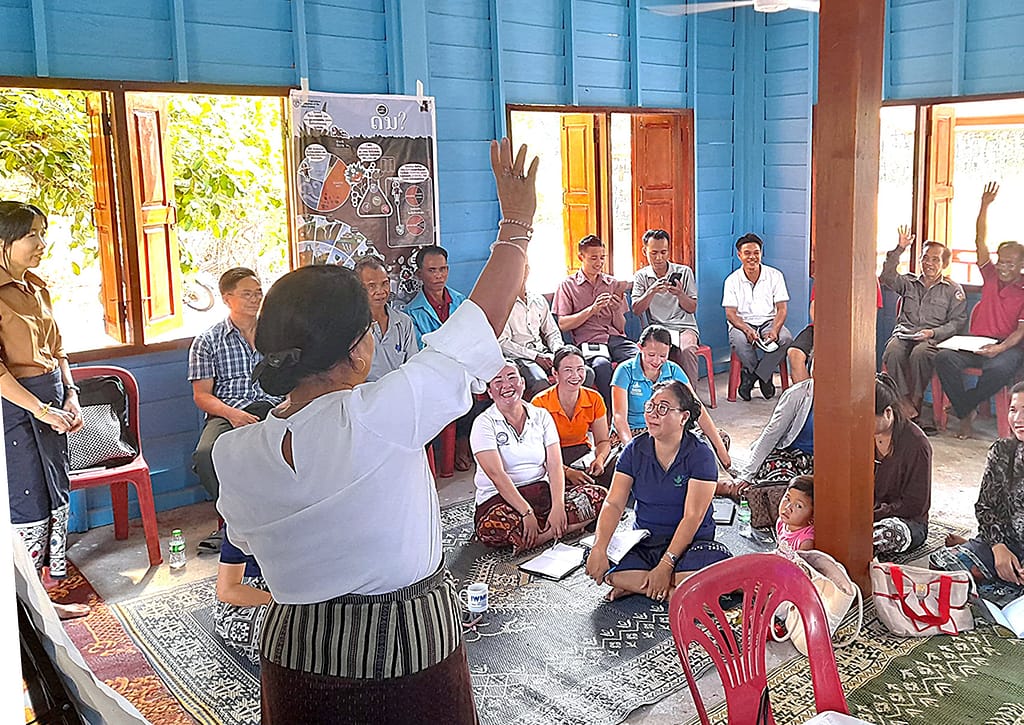
The Nong Lom wetlands in Attapeu Province of the Lao People’s Democratic Republic (Lao PDR) feature a permanent lake surrounded by agricultural and residential areas. They play a vital role in supporting local livelihoods: they offer rich fishing grounds, supply water for agricultural activities and deliver a range of valuable environmental benefits.
However, like many other wetlands in the region, the Nong Lom wetlands are increasingly threatened by changes in land use, expanding infrastructure and the impacts of climate change. In the rural development context of Lao PDR, economic and institutional challenges further hinder sustainable natural resource management. For example, growing dependence on unsustainable resource use for food and livelihoods, coupled with weak institutional capacity and ineffective local governance, impedes efforts to manage wetlands sustainably.
In response, the International Water Management Institute (IWMI) is engaging a diverse range of stakeholders in co-developing technological, socioecological, policy and institutional innovations that enhance food production, conserve biodiversity and protect vital natural resources.
In May 2025, as part of the CGIAR Multifunctional Landscapes Program, IWMI organized a training for members of the Nong Lom wetlands management committee — 27 participants, including 12 women, from the Hom and Tammaleuay villages, where the wetlands are located. They learnt about principles and application of tools for committee management and how to better manage their operational funds.
The training helped clarify the roles of committee members and provided them with the knowledge they need to support the effective implementation of the Management Plan for the Nong Lom wetlands in the Attapeu Province (2024–2029), developed with support from IWMI and WorldFish under the previous CGIAR Initiative on Agroecology.
The training curriculum was developed in close consultation with community members. It incorporated lessons from a farmer-to-farmer learning exchange in the Xiengkhouang Province, previously organized by IWMI and its partners. This consultation, for example, identified the need to develop practical operational guidelines for farmer groups to support the effective and collaborative implementation of the plan.

Participating community members were encouraged to actively engage in decision-making and gained a sense of ownership over the actions needed for the sustainable management of the wetlands. A community fund was established to support the implementation of the management plan with contributions from the community members.
“I found the training valuable because it gave community members the opportunity to discuss shared priorities and plan joint activities to fulfill their roles in implementing the management plan. We also gained knowledge on how to effectively utilize the community fund for these activities,” said Ammala, a villager of Hom and a member of the Nong Lom wetlands management committee.
IWMI and the local partners will continue to strengthen the capacity of community members of the Nong Lom wetlands management committee to lead the protection, management and development of the wetlands. In addition, IWMI will assist members of the Nong Lom wetlands management committee in advocating for additional funding — potentially from government agencies and development projects — to expand their community fund and further support the sustainable management of the Nong Lom wetlands.
















